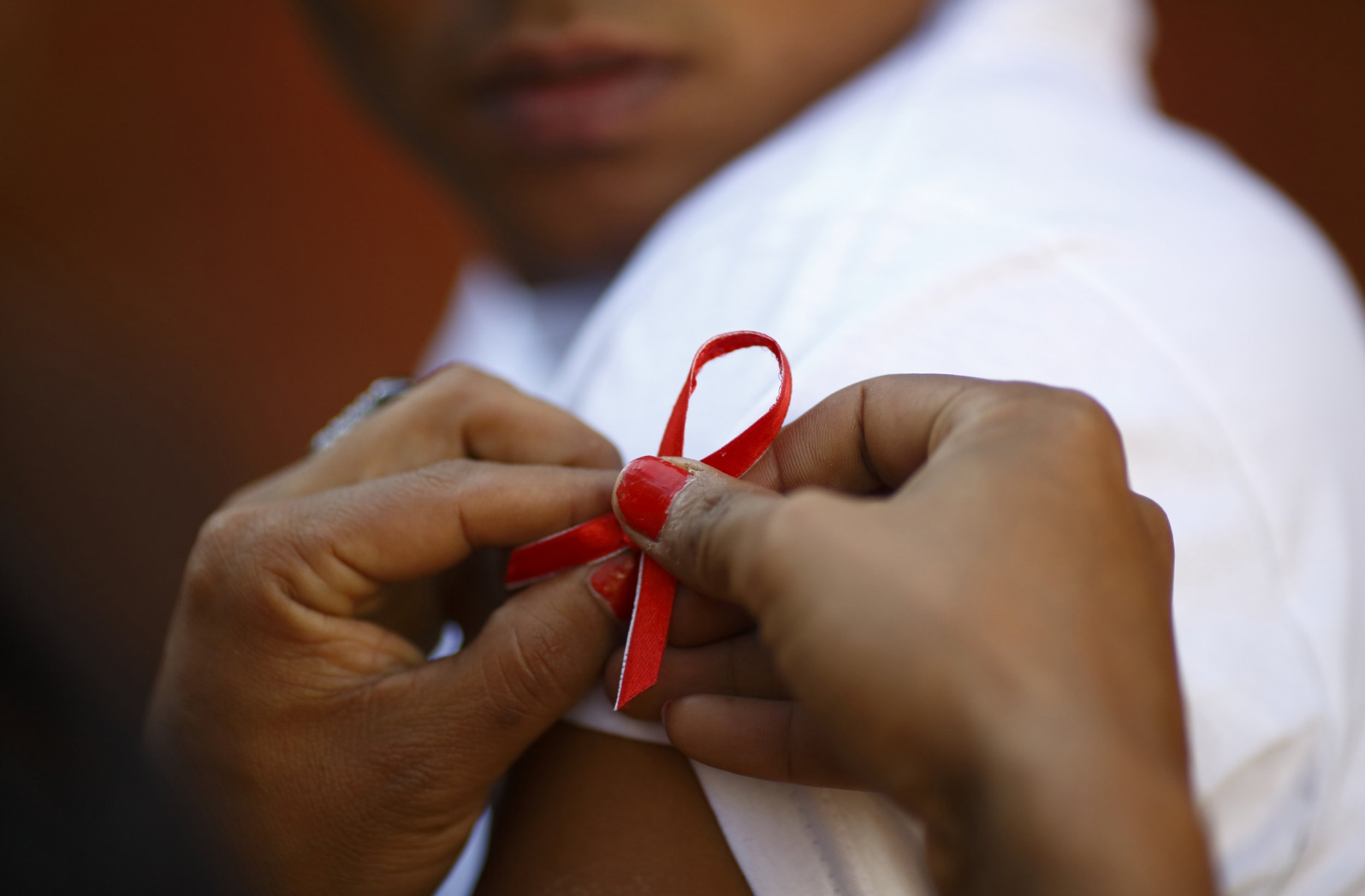
For a long time, biomedical researchers have tried to develop a vaccine for HIV, the virus that leads to AIDS. Despite years of effort, and some modest progress, the attempts have been largely unsuccessful.
But scientists have come up with a very promising "alternative vaccine." As described in a study published online today in Nature, researchers have developed a protein-based treatment that, when given to monkeys, prevents the animals from becoming infected with the simian version of the HIV—SHIV, or simian/human immunodeficiency virus—even when exposed multiple times to very large quantities of the pathogen.
The scientists, including Michael Farzan at the Scripps Research Institute, also showed that the newly developed protein inactivates every major strain of HIV tested. The protein, known as eCD4-Ig, binds to two receptors on HIV's exterior that the virus normally uses to bind and gain entry to human immune cells called CD4's—which the virus hijacks to produce more copies of itself. But when this protein gloms on, HIV cannot enter the immune cells and actually changes shape, rendering it inert, Farzan says.
"What Mike [Farzan] has done very ingeniously is to develop a molecule that attacks HIV in two different spots…[and] is able to neutralize most if not all strains of HIV," says Dr. Philip Johnson, a researcher at the University of Pennsylvania and the Children's Hospital of Philadelphia, who was not involved in the study.
To create a vaccine, you need to get the body's immune system to produce antibodies against the virus (or other pathogen), which recognize and flag the foreign invader. Typical methods used to produce vaccines haven't worked with HIV, in part because the virus mutates so quickly.
Looking to sidestep the immune system, Johnson came up with a new idea, originally published in 2003. In this technique, he inserted genes used to make HIV antibodies into a harmless virus, which was then injected into the muscle cells of mice. The process transformed the muscle cells into "little factories" producing HIV antibodies, protecting the body against exposure to the virus. Johnson has showed the method works in monkeys and is now testing it in humans.
Farzan used this same basic technique, but instead of inserting genes used to make antibodies, he inserted genes that make copies of eCD4-Ig. These little proteins appear to be more potent than any antibody developed to date, Farzan says.
They also seem less likely to interfere with and be recognized by the host's immune system, says Guido Silvestri, a scientist at Emory University who was not involved in the study. Perhaps unexpectedly, foreign antibodies can actually be attacked as foreign objects by the body's immune system, he says. But, Farzan says, eCD4-Ig appears to fly under the radar, so to speak.
HIV will not be able to easily develop resistance to this new protein, Farzan says. Unlike antibodies, which can bind to areas of HIV that aren't necessary for its survival and can mutate, this new molecule targets sites that must be used to bind to human CD4 cells, says Dr. Robert Doms of the University of Pennsylvania and the Children's Hospital of Philadelphia.
But whether this new method will work in humans remains to be seen, Farzan says, though he hopes to start human trials soon. He says there are reasons to be hopeful: The gene therapy technique has already been shown to be well tolerated in humans, and the components that make up the new protein have been shown to be safe, although not (yet) when combined in this new configuration, he says.
Ideally, the method could be developed into a "vaccine" that could be given to millions to protect them against HIV, Farzan says, though of course it needs to be shown first that it is safe for humans. Although many would argue that it is not a "vaccine" since it doesn't get the immune system to produce antibodies (as other therapies with this moniker do), it is probably the best descriptor for the general public, Farzan says. Unless you want to call it "immunoprophylaxis by gene transfer," which Johnson prefers.
Uncommon Knowledge
Newsweek is committed to challenging conventional wisdom and finding connections in the search for common ground.
Newsweek is committed to challenging conventional wisdom and finding connections in the search for common ground.
About the writer
Douglas Main is a journalist who lives in New York City and whose writing has appeared in the New York ... Read more
To read how Newsweek uses AI as a newsroom tool, Click here.






